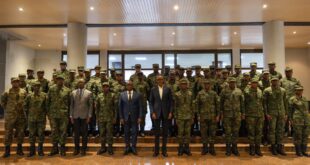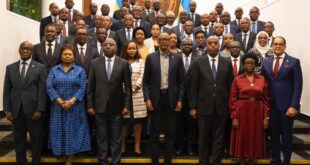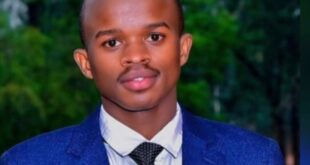Judicial authorities in Rwanda are prosecuting opposition members, journalists, and commentators on the basis of their speech and opinions, Human Rights Watch said today. Throughout 2020 and 2021, Human Rights Watch monitored trials in which judicial authorities pursued politically motivated prosecutions and perpetuated a culture of intolerance of dissent.
Less than two years out from the 2024 presidential election campaign season, the Rwandan government should ensure an end to violations against civil society activists, journalists, and opposition figures. The government should also protect their right to freedom of expression – a precondition to creating a conducive environment for free and fair elections.
“Judicial authorities in Rwanda, lacking the independence to stand up and protect free speech in accordance with international law, have unjustly convicted and jailed people based on their protected speech and opinions,” said Lewis Mudge, Central Africa director at Human Rights Watch. “All those jailed unjustly should be immediately and unconditionally released, and the abusive legal framework that allowed their prosecution should be reviewed and brought in line with international free speech standards.”
Since the publication of a March 2021 report on the arrests of, and threats against, several Rwandans for posts on YouTube, Human Rights Watch has monitored trials and reviewed trial documents and verdicts to examine the evidence and arguments of prosecutorial authorities, and the basis for judges’ rulings.
Researchers also reviewed content published on various channels managed by journalists and commentators on trial and interviewed 11 opposition members and people who post on YouTube. The cases documented are not exhaustive – Human Rights Watch also received information about other similar cases.
On March 3, 2022, Human Rights Watch wrote a letter to Justice Minister Emmanuel Ugirashebuja to share information about the cases it has documented and to request information on the Rwandan authorities’ steps to address violations of the right to freedom of expression. The government has not responded.
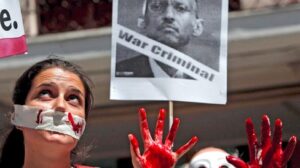
Rwanda has very few opposition parties, and human rights organizations and independent media remain weak. Victoire Ingabire, who was the president of the unregistered opposition party FDU-Inkingi before founding Dalfa-Umurinzi in November 2019, was released from prison in 2018. Members of her party have repeatedly been harassed, threatened, and arrested, or have died or disappeared in suspicious circumstances. Since October 2021, at least eight members of her party have been arrested and charged with offenses, including spreading rumors and forming a criminal association, in relation to a book they acquired and an online training session they attended to learn strategies for peaceful dissent.
Journalists using YouTube as a platform have also been targeted for prosecution for not registering with the Rwanda Media Commission (RMC) or for publishing information that contradicts the government’s version of certain events, such as the suspicious death in custody of Kizito Mihigo, a gospel singer and activist, or disappearances of government opponents.
The cases of Dieudonné Niyonsenga – alias Cyuma Hassan – and Théoneste Nsengimana, which Human Rights Watch documented, could further erode journalists’ legal protections and narrow the space for media and online speech. Niyonsenga, a high-profile YouTuber, was found guilty on appeal of forgery, impersonation, hindering public works, and “humiliation of national authorities and persons in charge of public service.” The last charge, which was added during the first appeal, is no longer a criminal offense in Rwanda. The prosecution authority announced it was lodging a “second appeal” to correct the error. Its verdict is expected on March 18. On March 9, Human Rights Watch received reports and confirmed that Ishema TV was no longer available on YouTube. At time of writing, it is unclear whether the channel was removed voluntarily.
Since 1994, speaking about crimes committed by the ruling Rwandan Patriotic Front (RPF) in the aftermath of the genocide, or sometimes even simply commemorating Hutu who were killed during the genocide, is perceived as crossing a red line, with the government presenting it as a threat to Rwandan unity, or the country’s security as a whole.
“When you are pro-government, you don’t have any problems. When you talk about bad things, you become persecuted, you are a genocide denier,” one YouTuber told Human Rights Watch.
Another said, “They take one word, and they create a crime for you…. Here, the problem is talking the truth. If you do, they go after you.”
The Rwandan government may have legitimate grounds to seek to restrict the kind of dangerous, vitriolic speech that led to the deaths of over half a million people in 1994, but current laws and practices go far beyond this purpose – creating fear and effectively stifling opinions, debate, and criticism of the government.
As Rwanda approaches the 30-year mark since the genocide, and the government aims to ramp up efforts to combat genocide ideology, there is a need to ensure that Rwandans can peacefully express legitimate grievances related to the genocide and post-genocide periods, Human Rights Watch said.
Article 38 of the 2015 Constitution protects freedom of expression but limits that protection by permitting ill-defined restrictions based on “public order, good morals, the protection of the youth and children, the right of every citizen to honor and dignity and protection of personal and family privacy.” The government, with the support of the judiciary, has used this clawback clause to impose restrictions on freedom of expression in ways that are incompatible with Rwanda’s regional and international obligations.
As Rwanda prepares to host the Commonwealth Heads of Government Meeting, scheduled to take place in June, the international community should take a stand and press the authorities to stop harassing, immediately release, and drop all charges against opposition members, YouTube commentators and journalists facing abusive prosecutions that violate freedom of expression. The authorities should also open credible, independent, and transparent investigations into suspicious deaths and disappearances of critics, opposition members, civil society actors, and journalists, and prosecute those responsible.
“The evidence provided by the prosecuting authorities, and what judges have chosen to rely on to justify their conclusions, clearly demonstrates that these cases violate African and international human rights law,” Mudge said. “Prosecuting those who challenge the government of incitement to insurrection or of attempting to tarnish the country’s image is an indication of how little dissent is tolerated in Rwanda.”
———————————————————————————————————–
N.B: you can follow me at – Robert Patrick Fati Gakwerere page (Facebook page), @RGakwerere (tweeter) https://twitter.com/RGakwerere?s=08 or at my blog – rpfgakwerere.org.
However, for those in the enclave – Rwanda, the blog rpfgakwerere.org was blocked by the junta regime, it can’t be accessed unless you are using VPN.
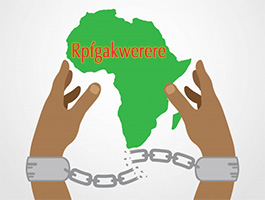 Africa Just another WordPress site
Africa Just another WordPress site
